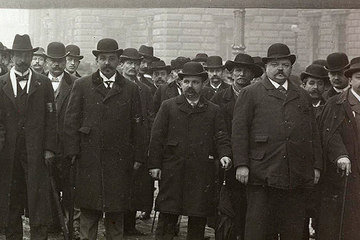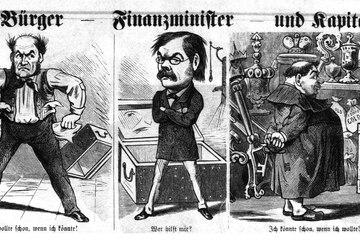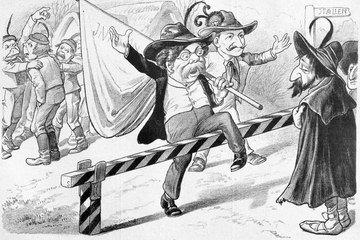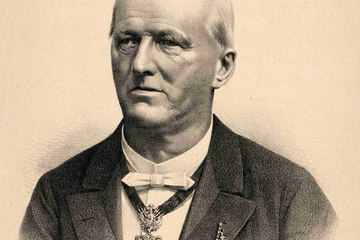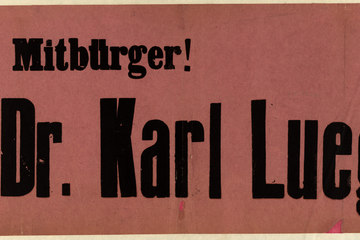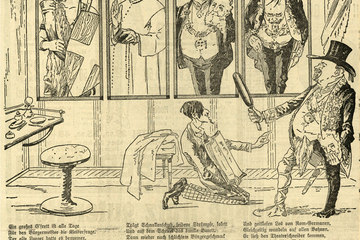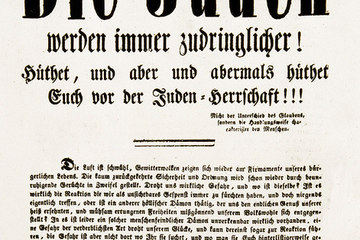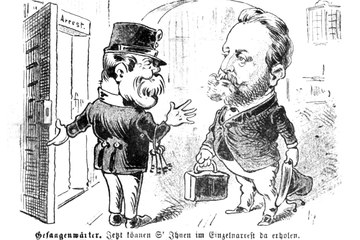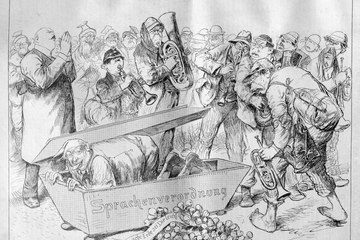The genesis of the political parties
The second half of the 19th century saw fundamental changes in the political culture of the Austro-Hungarian Empire. The February Patent of 1861 and the adoption of the December Constitution in 1867 led to broader sections of society being able to participate in the political process. The Associations Act adopted in the same year permitted the foundation of political associations and thus created the precondition for mobilising and politicising the masses. However, census suffrage, which lasted until 1896, continued to exclude the impoverished sectors of the population from participation in politics and representation. The 1880s saw the formation of the large political camps, the Social Democrat, the Christian Social and the German National, whose common origin is to be found in their opposition to the liberal government. They represented a completely new type of party with a cohesive organisation and a broad popular base. The introduction of the universal, direct, equal and secret vote for men in 1907 allowed all male citizens to participate in the political decision-making process.
Translation: David Wright



